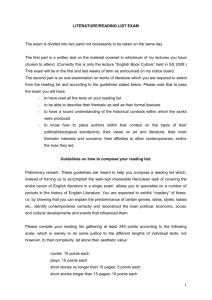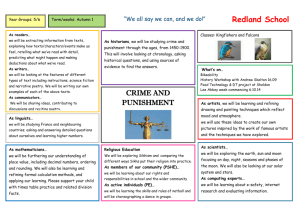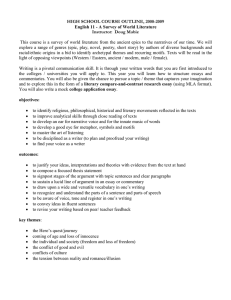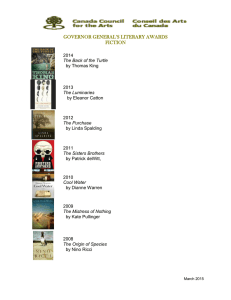Speaking for the Dead: as a response to history.
advertisement
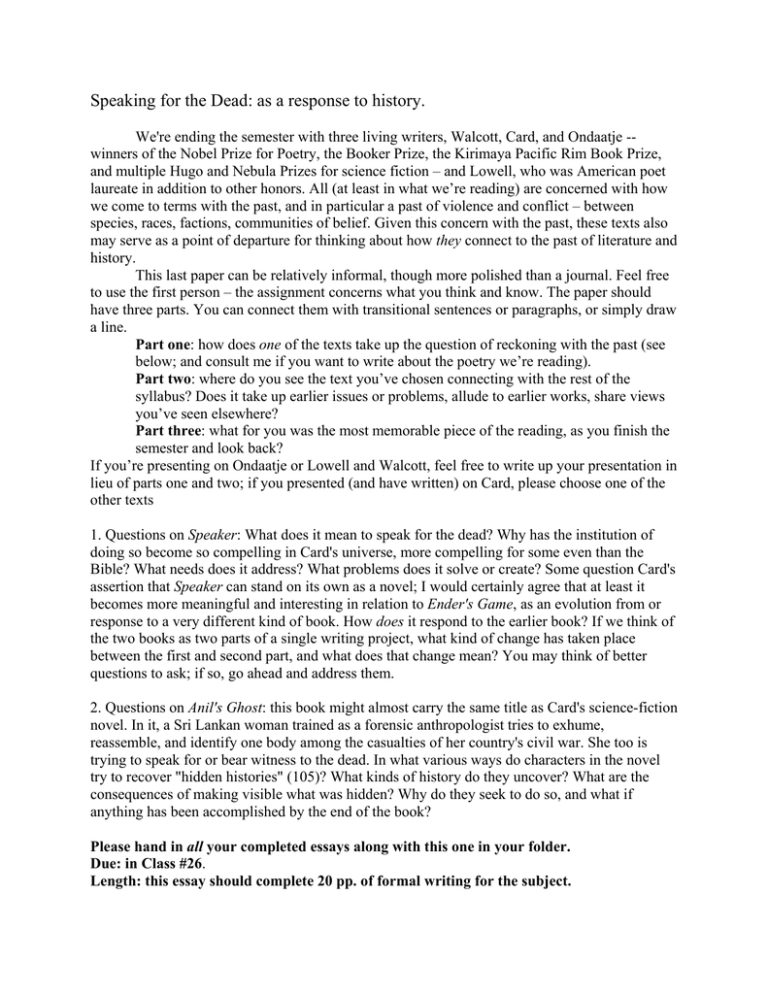
Speaking for the Dead: as a response to history. We're ending the semester with three living writers, Walcott, Card, and Ondaatje -winners of the Nobel Prize for Poetry, the Booker Prize, the Kirimaya Pacific Rim Book Prize, and multiple Hugo and Nebula Prizes for science fiction – and Lowell, who was American poet laureate in addition to other honors. All (at least in what we’re reading) are concerned with how we come to terms with the past, and in particular a past of violence and conflict – between species, races, factions, communities of belief. Given this concern with the past, these texts also may serve as a point of departure for thinking about how they connect to the past of literature and history. This last paper can be relatively informal, though more polished than a journal. Feel free to use the first person – the assignment concerns what you think and know. The paper should have three parts. You can connect them with transitional sentences or paragraphs, or simply draw a line. Part one: how does one of the texts take up the question of reckoning with the past (see below; and consult me if you want to write about the poetry we’re reading). Part two: where do you see the text you’ve chosen connecting with the rest of the syllabus? Does it take up earlier issues or problems, allude to earlier works, share views you’ve seen elsewhere? Part three: what for you was the most memorable piece of the reading, as you finish the semester and look back? If you’re presenting on Ondaatje or Lowell and Walcott, feel free to write up your presentation in lieu of parts one and two; if you presented (and have written) on Card, please choose one of the other texts 1. Questions on Speaker: What does it mean to speak for the dead? Why has the institution of doing so become so compelling in Card's universe, more compelling for some even than the Bible? What needs does it address? What problems does it solve or create? Some question Card's assertion that Speaker can stand on its own as a novel; I would certainly agree that at least it becomes more meaningful and interesting in relation to Ender's Game, as an evolution from or response to a very different kind of book. How does it respond to the earlier book? If we think of the two books as two parts of a single writing project, what kind of change has taken place between the first and second part, and what does that change mean? You may think of better questions to ask; if so, go ahead and address them. 2. Questions on Anil's Ghost: this book might almost carry the same title as Card's science-fiction novel. In it, a Sri Lankan woman trained as a forensic anthropologist tries to exhume, reassemble, and identify one body among the casualties of her country's civil war. She too is trying to speak for or bear witness to the dead. In what various ways do characters in the novel try to recover "hidden histories" (105)? What kinds of history do they uncover? What are the consequences of making visible what was hidden? Why do they seek to do so, and what if anything has been accomplished by the end of the book? Please hand in all your completed essays along with this one in your folder. Due: in Class #26. Length: this essay should complete 20 pp. of formal writing for the subject.


